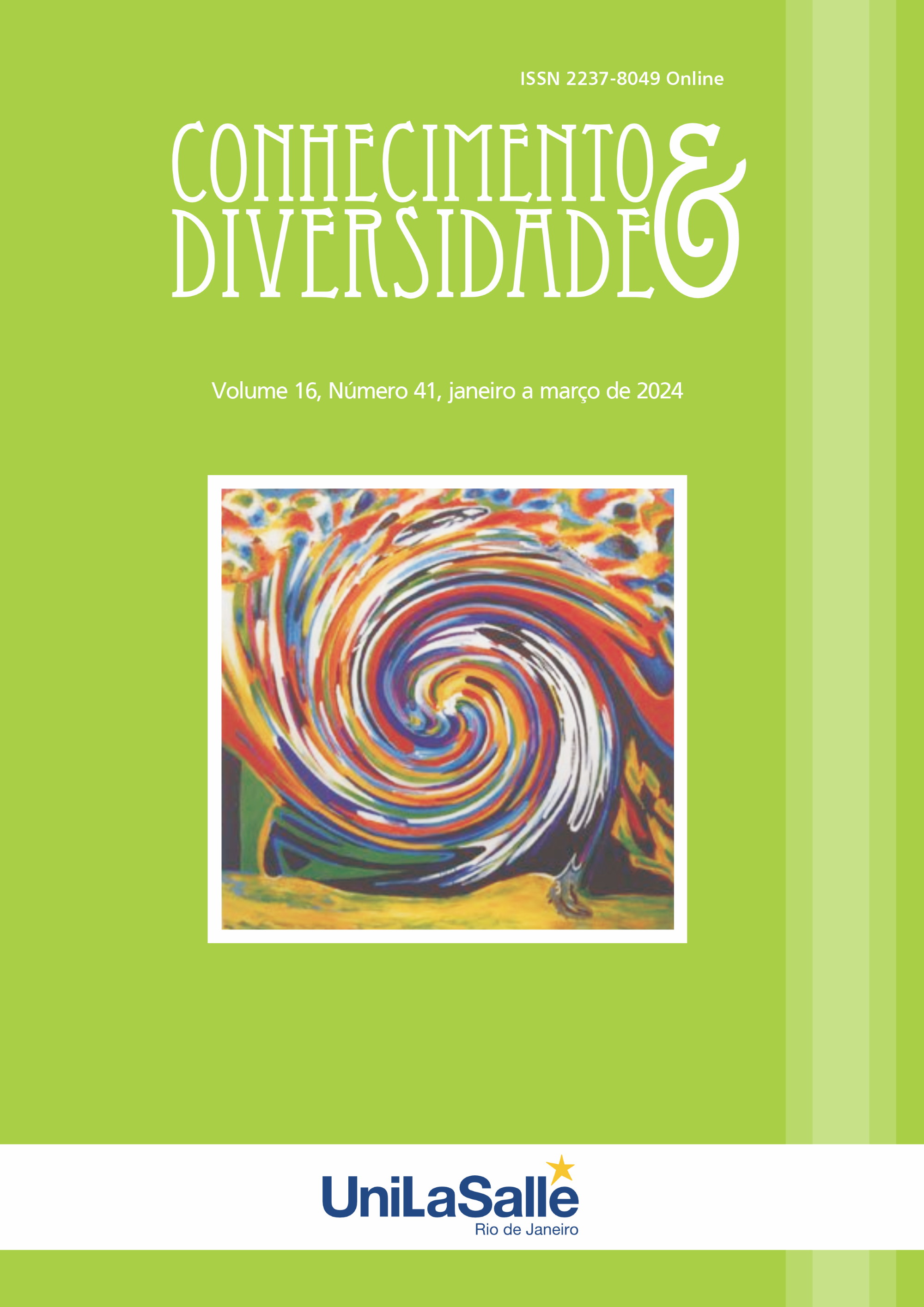EDUCAÇÃO A DISTÂNCIA
UMA ABORDAGEM ADAPTATIVA À APRENDIZAGEM NA ERA DA INFORMAÇÃO E DO CONHECIMENTO
DOI:
https://doi.org/10.18316/rcd.v16i41.11521Palavras-chave:
sistema educacional, condições pedagógicas, educação a distância, ensino a distânciaResumo
Este estudo centra-se nas tendências globais no desenvolvimento da educação, com especial ênfase no ensino à distância. São considerados o estado atual e as perspectivas para o desenvolvimento desta forma de educação tanto no estrangeiro como na Ucrânia. A ênfase é colocada na análise dos principais desafios e ameaças potenciais aos interesses nacionais da Ucrânia no contexto do atraso na implementação e integração do ensino à distância. É dada especial atenção às recomendações para a popularização do ensino à distância na Ucrânia. São propostas medidas específicas destinadas a melhorar a qualidade e a acessibilidade do ensino à distância. Isto inclui o desenvolvimento e implementação de soluções tecnológicas de última geração, programas educacionais que atendam aos padrões internacionais, bem como a ampliação da rede de acesso a recursos educacionais para todas as categorias da população. O estudo também inclui uma análise de práticas mundiais bem sucedidas no domínio da educação a distância que podem ser adaptadas ao contexto ucraniano. O estudo da experiência de outros países permite determinar estratégias e métodos eficazes que contribuirão para o desenvolvimento da esfera educacional na Ucrânia, tornando-a mais competitiva e moderna
Referências
ANDERSON, T., & DRON, J. Three generations of distance education pedagogy. The International Review of Research in Open and Distributed Learning, 12(3), 80-97, 2011.
GARRISON, D.R., & VAUGHAN, N.D. Blended learning in higher education: Framework, principles, and guidelines. John Wiley & Sons, 2013.
PICCIANO, A. G. Theories and frameworks for online education: Seeking an integrated model. Online Learning, 21(3), 166-190, 2017.
SALMON, G. E-tivities: The key to active online learning (2nd ed.). Routledge, 2013.
SIEMENS, G., & TITTENBERGER, P. Handbook of emerging technologies for learning. University of Manitoba, 2009.
ANDERSON, C. A. Teaching in an online learning context: The experiences of primary school teachers in Scotland. European Journal of Open, Distance and E-Learning, 19(1), 26-39, 2016.
ROVAI, A.P. In search of higher persistence rates in distance education online programs. The Internet and Higher Education, 15(2), 89-89, 2013.
BATES, A. W., & SANGRÀ, A. Managing technology in higher education: Strategies for transforming teaching and learning. John Wiley & Sons, 2011.
GURI-ROSENBLIT, S. Distance education in the digital age: Common misconceptions and challenging tasks. Open Learning: The Journal of Open, Distance and e-Learning, 29(1), 35-52, 2014.
KEEGAN, D. Foundations of distance education. Routledge, 2013.
MOORE, M. G., & KEARSLEY, G. Distance education: A systems view of online learning. Cengage Learning, 2012.
VRASIDAS, C., & GLASS, G. V. Distance education: A research review. International Journal of Educational Telecommunications, 1(1), 9-57, 2014.
GARRISON, D.R., ANDERSON, T., & ARCHER, W. The first decade of the community of inquiry framework: A retrospective. The Internet and Higher Education, 13(1-2), 5-9, 2010.
KEEGAN, D. Theoretical principles of distance education. Routledge, 2013.
SALMON, G. E-moderating: The key to online teaching and learning. Routledge, 2014.
BERGE, Z. L., & MUILENBURG, L. Y. Handbook of mobile learning. Routledge, 2016.
HOLMBERG, B. Theory and practice of distance education. Routledge, 2017.
GURI-ROSENBLIT, S. Transition to online distance education through MOOCs: Challenges and implications. European Journal of Open, Distance and E-Learning, 21(1), 1-18, 2018.
BATES, A. W. Teaching in a digital age: Guidelines for designing teaching and learning. Tony Bates Associates Ltd., 2019.
GARRISON, D. R., ANDERSON, T., & ARCHER, W. Critical inquiry in a text-based environment: Computer conferencing in higher education. The Internet and Higher Education, 2(2-3), 87-105, 2017.
Downloads
Publicado
Edição
Seção
Licença
Copyright (c) 2024 Viktoriia Herman, Oleh Vesolovskyi , Inna Pysmenna , Alla Kolodyazhna, Ruslana Mnozhynska

Este trabalho está licenciado sob uma licença Creative Commons Attribution 4.0 International License.
Conforme recomendado pelo o Public Knowledge Project, a RCD adota para seus artigos uma licença CREATIVE COMMONS: Atribuição CC BY 4.0.
Esta licença permite que outros distribuam, remixem, adaptem e construam sobre o seu trabalho, mesmo comercialmente, desde que lhe dêem crédito pela criação original.
Esta é a licença mais adequada oferecida.
Recomendado para a máxima divulgação e uso de materiais licenciados.



